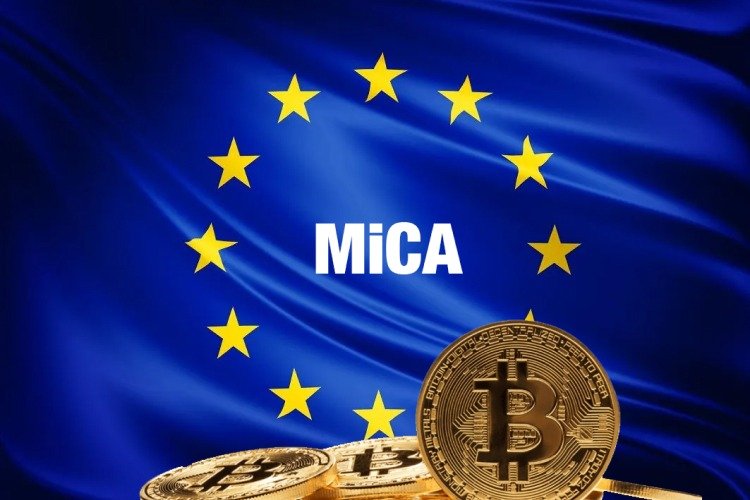How MiCA Will Reshape Crypto Gambling in the EU: KYC, Compliance, and the End of Anonymous Casinos

The European Union is set to transform the crypto landscape with its new Markets in Crypto-Assets (MiCA) regulation, set to take full effect in December 2024. Designed to standardize crypto regulations across the EU, MiCA aims to protect consumers, combat fraud, and establish Europe as a global leader in crypto innovation. While the regulation covers a broad range of crypto activities, one sector facing significant changes is online gambling—particularly crypto casinos.
For years, crypto casinos have thrived on the promise of anonymity, fast transactions, and borderless gaming. But under MiCA’s new rules, these platforms will face stricter oversight. This could mean the end of fully anonymous gambling in the EU, as casinos will be required to implement robust compliance measures, including Know Your Customer (KYC) protocols.
What Is MiCA and Why Does It Matter?
MiCA represents the EU’s first comprehensive regulatory framework for crypto-assets. It covers a wide range of activities, from issuing tokens to operating exchanges and providing wallet services. One key objective of MiCA is to bring crypto platforms into compliance with the EU’s broader financial regulations.
For crypto casinos, this means adapting to a system that emphasizes transparency, accountability, and consumer protection. While these measures aim to foster trust and innovation, they also challenge the core appeal of crypto casinos—anonymity.
Key MiCA Provisions Impacting Crypto Casinos
1. Mandatory KYC and AML Compliance
Under MiCA, all Crypto-Asset Service Providers (CASPs)—a category that includes crypto casinos—must implement stringent KYC and Anti-Money Laundering (AML) procedures. This will require crypto casinos to verify the identities of their users, ensuring compliance with EU regulations.
For players, this means the days of signing up with just a wallet address may be over. Instead, users will need to provide identification documents, similar to traditional online casinos. While this change reduces anonymity, it also enhances security and accountability.
2. Licensing and Market Access
MiCA requires crypto casinos to obtain authorization from their home country within the EU. Once licensed, these platforms can operate across all member states under a single regulatory framework. This simplifies cross-border operations but subjects casinos to stricter oversight.
For players, this means greater confidence in the legitimacy of platforms operating in the EU. Authorized casinos will need to meet high standards of transparency and fairness, providing a safer gambling environment.
3. Consumer Protection Measures
MiCA introduces enhanced protections for consumers, including requirements for clear disclosure of fees, game fairness, and platform solvency. Crypto casinos will also need to provide tools for responsible gambling, aligning them with traditional online gambling platforms.
Expert Insight: Mark Taylor on Crypto Gambling Trends
Mark Taylor, expert casino analyst and writer at Casino Whizz, has observed significant growth in online gambling fueled by Bitcoin’s rise in popularity. “We’ve seen a large influx of new visitors since Bitcoin’s massive growth,” Taylor shared. “The convenience and speed of using cryptocurrencies have attracted millions to online casinos. However, these new regulations will likely be a bit of a setback for crypto casinos. KYC requirements, while necessary for compliance, could deter some users who value privacy and ease of access.”
Taylor believes that despite these challenges, the online gambling trend will continue to grow. “Regulations might slow things down temporarily, but the demand for crypto gambling isn’t going anywhere. The industry will adapt, just as it always has.”
The End of Anonymous Gambling?
One of MiCA’s most significant impacts is the likely end of fully anonymous gambling in the EU. While crypto casinos have long attracted users with their promise of privacy, MiCA’s KYC requirements will fundamentally change this dynamic. Platforms that fail to comply with these rules may face fines, restrictions, or even a ban from operating in the EU.
Offshore Casinos: A Loophole?
A critical question is how MiCA will address offshore crypto casinos targeting European players. While these platforms may initially evade EU regulations, enforcement measures such as blocking access or penalizing operators could limit their reach. Additionally, EU banks and payment providers may restrict transactions to non-compliant platforms, further reducing their appeal.
What This Means for Players
For EU residents who gamble at crypto casinos, MiCA’s implementation will bring both challenges and benefits:
-
Reduced Anonymity: Players will need to verify their identities, eliminating the privacy that has been a hallmark of crypto gambling.
-
Increased Security: Licensed casinos will be subject to strict oversight, reducing the risk of fraud or unfair practices.
-
Greater Transparency: Platforms will need to disclose fees, rules, and solvency, creating a more trustworthy environment.
-
Access to Legitimate Platforms: Licensing will weed out unregulated or shady operators, ensuring that players have access to legitimate services.